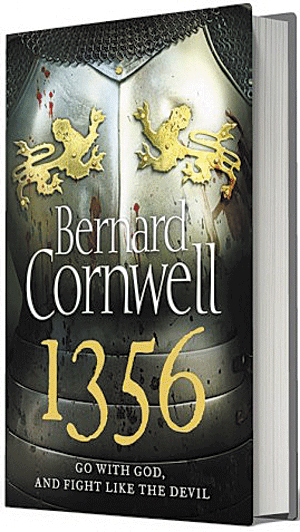By Tish Wells
McClatchy Newspapers
All in all, the Middle Ages in Europe was lousy living for most people.
How can you tell? Just pick up “1356” by prolific author Bernard Cornwall and you’ll see. Like the period it is written about, it needs a strong stomach to finish.
The pragmatic hero, Thomas of Hookton, is ordered to find the fictional lost sword of Saint Peter, la Malice, which is reputed to bring victory to the armies that wield it. Of course, others are also hunting the weapon.
The quests culminate at the battle of Poitiers where the badly outnumbered English forces, under Edward the Black Prince, face off with the army of a confident King John II of France. The slaughter was overwhelming.
The English won.
Cornwall is one of the best writers of historical fiction. He does extensive research for his various book series. This is the latest in his Grail Quest series after “The Archer’s Tale,” “Vagabond” and “Heretic.” His other series have dealt with the Napoleonic wars (“Sharpe”), Saxon England, the American Revolution and King Arthur.
Here, he takes you through the turbulence of the Europe’s Hundred Years War rivalry between England and France, with its armies, mercenaries and destruction. It’s more than just army against army — this was ground warfare at its ugliest, a scorched-earth policy across France, destroying villages and mills and taking plunder.
It’s also a time heavily dominated by the Catholic Church and two Popes — one in France’s Avignon, the other in Rome. Papal intrigue plays a part in the search for la Malice.
“1356,” though, is about humanity swept up in constant wars, and it is graphically violent at times. It starts with two rapes at the sack of Carcassonne in France, all within the first five pages. Next, a man’s eyes are pecked out by a hawk, then he is smothered to death. From then on things go downhill.
Thomas, also known as le Batard, leads the Hellequin, a mercenary group with “just over 60 archers, all of them English or Welsh, and thirty-two men-at-arms from Gascony. All of them adventurers who sought money and found it with le Batard.” It’s through his actions that the sword ends up on a battlefield where chivalry and reality collide.
The fate of la Malice is left for him to decide.
Send questions/comments to the editors.



Comments are no longer available on this story